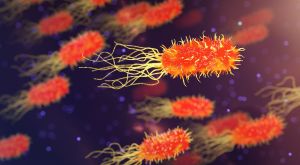Un estudio internacional con participación de investigadores del Consejo Superior de Investigaciones Científicas (CSIC) ha determinado que las bacterias resistentes halladas en aguas residuales de las plantas depuradoras reflejan las resistencias a antibióticos de la población de una ciudad. Los resultados, publicados en la revista Science Advances, confirman además el perfil de resistencias observado en ambientes clínicos, que aumenta en países del sur de Europa, donde el consumo de antibióticos es mayor que en el norte del continente. El método de análisis empleado en este estudio podría servir como base para implementar sistemas de vigilancia global de la resistencia a los antibióticos.
“Este estudio muestra que existe una correlación entre las bacterias resistentes circulantes en la población y las que llegan a las plantas depuradoras procedentes de residuos domésticos, incluyendo bacterias presentes en humanos”, explica José Luis Martínez, del Centro Nacional de Biotecnología, quien ha participado en el estudio.
“Este tipo de análisis de las bacterias presentes en las depuradoras serviría para determinar de manera global cuáles son las resistencias propias (resistoma) de una ciudad/región y podría servir como base para implementar sistemas de vigilancia capaces de determinar la prevalencia de la resistencia de un modo general en una población”, concluye Martínez.
Los investigadores de este trabajo han analizado, mediante técnicas de metagenómica, la presencia de genes de resistencia a antibióticos en las bacterias que llegan a las plantas regeneradoras de agua residual y las que sobreviven tras el proceso de depuración del agua.
El estudio también ha confirmado la eficacia de los tratamientos en la depuración del agua, con la disminución o práctica desaparición de las bacterias resistentes encontradas en el agua regeneradas.
Este trabajo es el más amplio sobre resistencia bacteriana en aguas residuales realizado en Europa hasta la fecha. Ha sido desarrollado por un consorcio europeo formado por equipos de investigación de Finlandia, Alemania, Irlanda, Noruega, Portugal, Chipre y España.
Estos resultados siguen la línea de la Organización Mundial de la Salud, que lleva años promoviendo un plan global de actuación para afrontar la creciente aparición de bacterias resistentes a los antibióticos actuales. Este plan de vigilancia y control no sólo regula la utilización clínica de antibióticos en humanos y animales, sino cualquier otro aspecto medioambiental donde pueden aparecer bacterias resistentes y que son cruciales para entender el impacto de las resistencias bacterianas en la salud.
Katariina M. M. Pärnänen, Carlos Narciso-da-Rocha, David Kneis, Thomas U. Berendonk, Damiano Cacace, Thi Thuy Do, Christian Elpers, Despo Fatta-Kassinos, Isabel Henriques, Thomas Jaeger , Antti Karkman , Jose Luis Martinez , Stella G. Michael , Irene Michael-Kordatou, Kristin O’Sullivan, Sara Rodriguez-Mozaz, Thomas Schwartz, Hongjie Sheng, Henning Sørum, Robert D. Stedtfeld, James M. Tiedje, Saulo Varela Della Giustina, Fiona Walsh, Ivone Vaz-Moreira, Marko Virta, Célia M. Manaia. Antibiotic resistance in European wastewater treatment plants mirrors the pattern of clinical antibiotic resistance prevalence. Science Advances. DOI: 10.1126/sciadv.aau9124
CSIC Comunicación






